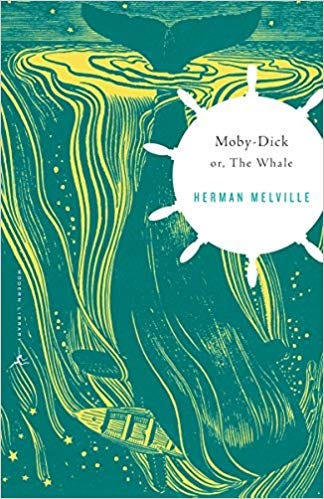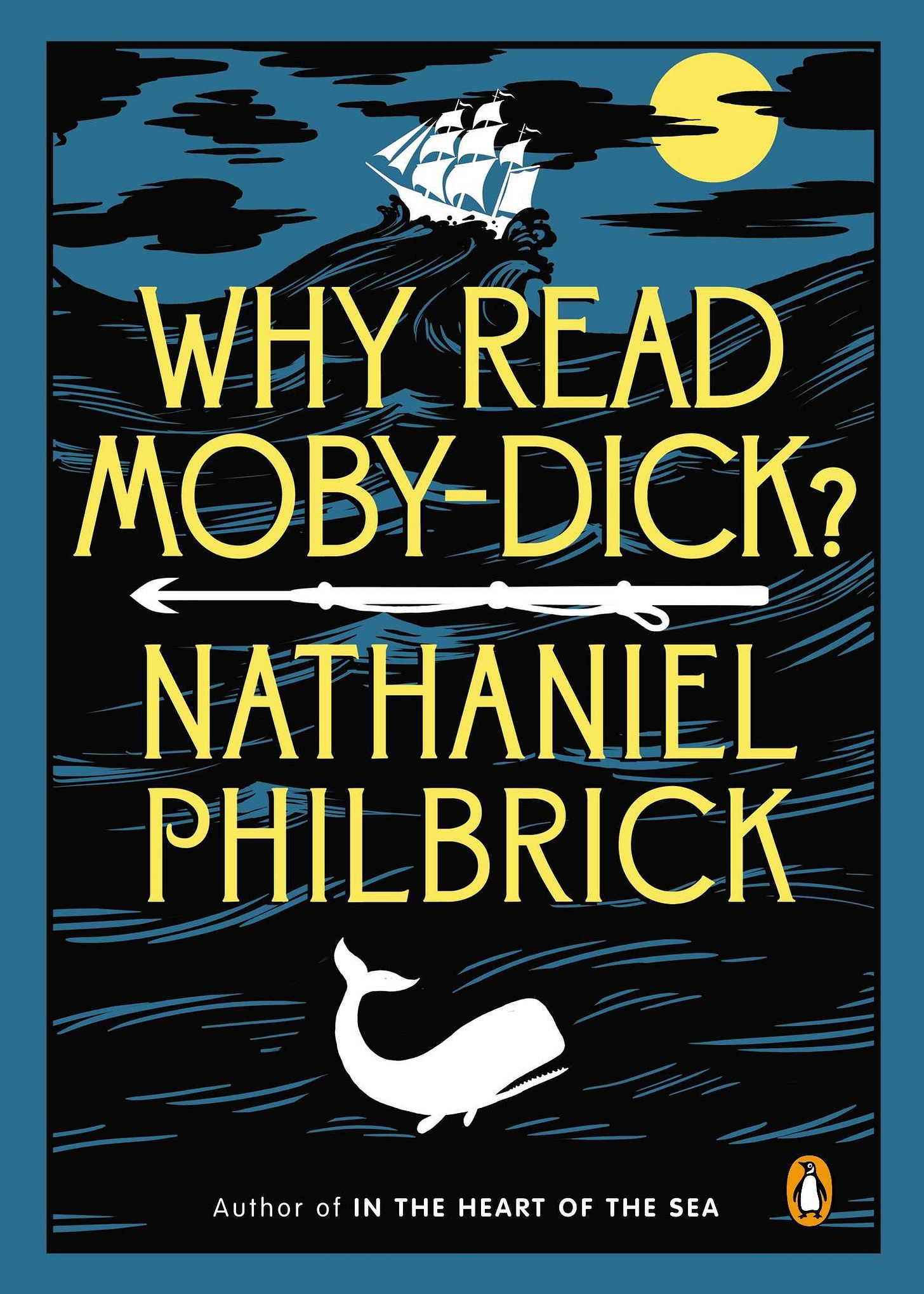What I'm Reading (No. 87): the great white whale
Very few novels are regularly considered for the title of the Great American Novel — the greatest piece of literature our land has produced. One of those that always shows up, though, is Moby-Dick.
I recently finished it after a long and tedious path towards the finish line. I first tried a few years ago, and made it a couple hundred pages in before giving up. Earlier this year, in May or so, I tried again and got a little bit further, but not by much.
So I took a break to read the 1,400-page Les Miserables (which, for the record, was easier and more enjoyable to read, even though it took a couple months of daily reading). After finishing that 19th century classic, I resolved to finish the other one I'd been working on, and finally closed the cover on Melville's masterpiece before summer was out.
Thank goodness it's over. Ha!
Let's talk about Moby-Dick, in all its boring glory. (As well as a short book explaining why Moby-Dick is worth reading.)
Moby-Dick by Herman Melville (1851, 821 pages)

"I’ll chase him round Good Hope, and round the Horn, and round the Norway Maelstrom, and round perdition’s flames before I give him up. And this is what ye have shipped for, men! to chase that white whale on both sides of land, and over all sides of earth, till he spouts black blood and rolls fins out." —Ahab
Even if you've never read Moby-Dick, you know the story. Old, crazed whaling captain vs. giant white whale. That pretty much covers the plot.
I really enjoyed the first 300 pages or so. I had gotten roughly that far twice. The writing is a bit bloated and stilted (even for the 1850s), but the plot was enjoyable and the chapters were short enough to be able to feel like I was making progress. I took a lot of notes, underlined a lot of beautiful passages, and thought it would be as quick a read as an 800-page book would allow.
But then, Melville goes as off the rails as Captain Ahab. For the next 300 pages or so, the plot moves at a stunningly slow pace, and the reader is treated to innumerous details about whale biology, whale oil harvesting, whale classifications, etc., etc., etc. I took zero notes between pages 348 and 667. That was a loooong slog my friends.
The story of Ahab vs. Moby-Dick is epic and captive and beautifully, poetically told and probably the best metaphor and symbology ever penned ("There is no steady unretracing progress in this life; we do not advance through fixed gradations . . . Where lies the final harbor, whence we unmoor no more?").
But, the plot only takes up half the novel. The rest goes a lot like this:
"Physiognomically regarded, the Sperm Whale is an anomalous creature. He has no proper nose. And since the nose is the central and most conspicuous of the features; and since it perhaps most modifies and finally controls their combined expression; hence it would seem that its entire absence, as an external appendage, must very largely affect the countenance of the whale."
Hard to get through even that much isn't it?
I'm definitely glad I read Moby-Dick — its place as an American classic is obviously firmly cemented. And the bits that are good are really good. The lessons on meaning (and meaninglessness) and obsession and vengeance are truly timeless. Even the cultural context of when it was written is fascinating; Melville certainly makes some points about antebellum America and the looming Civil War.
But I have a hard time actually recommending it to anyone, unless you're sort of a glutton for punishment and/or are really into classics and American lit. Whereas I knew immediately after finishing Les Mis that I'd want to read it again in a decade or so, I can't say the same for Moby-Dick unless I have good reason to.
I'd love to hear your take on it if you've read it, or tried reading it. (You'll perhaps remember from last week that it's a top 5 most abandoned classic novel.)
A Whale-ish Reading List
While I only just recently finished the classic itself, I've read a handful of books that are related to the topic:
In the Heart of the Sea by Nathaniel Philbrick. Truly one of the better, more memorable non-fiction narratives I've ever read. Philbrick, a preeminent history writers of our generation, tells the true story of the whaling expedition gone horribly wrong which inspired Melville's Moby-Dick. So so good.
Why Read Moby-Dick? by Nathaniel Philbrick. See below.
Leviathan: The History of Whaling in America by Eric Jay Dolin. A great book about the couple hundred years that the whaling industry ruled the world's oceans. After finishing I immediately went and bought his history of fur trapping (though I've not yet read it).
The Old Man and the Sea by Ernest Hemingway. The parallels between this and Moby-Dick are obvious. Man vs. fish. Hemingway's tale can be read in a day, and is much preferable in my humble opinion.
Is a Blue Whale the Biggest Thing There Is? by Robert Wells. A wonderful children's book that our family heard read aloud during storytime at our local butterfly pavilion.
Why Read Moby-Dick? by Nathaniel Philbrick

Thank goodness for this slim commentary on the white whale. Philbrick, a native New Englander, had an early natural interest in the sea — sailing, whaling, and all that the salty, rolling waves have to offer. So while other high schoolers tried their best to slog through Moby-Dick, Philbrick loved every word, and has since read the book at least a dozen times. (I can't fathom doing that, for the record.)
Philbrick understandably celebrates the storyline, but barely mentions the tedium of those few hundred pages that just don't offer much reward. Nor does he much mention the difficult writing style that's best described as utterly baroque.
That said, this is an easy-reading and worthwhile companion to reading Moby-Dick. Philbrick offers context, insightful analysis, and of course an obvious and thoughtful passion for the novel, which as a book lover is always just fun to encounter, no matter my own opinion of the book.
If you're reading Moby-Dick, might as well grab this one too.
That's it for me this week; as always, I'd love to hear what you're reading too. Thank you for the time and inbox space.
-Jeremy

